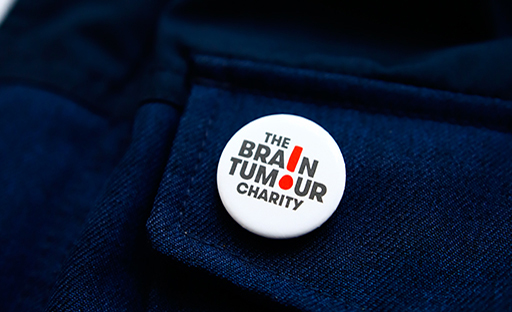Specialist cancer nurses play an important and valued part in delivering the best care and treatment for people following a cancer diagnosis. However, we know that this workforce is incredibly stretched, and despite doing everything possible to deliver high-quality care, there just aren’t enough staff to give every patient the support they need and deserve.
As National Cancer Clinical Nurse Specialists (CNS) Day was earlier this week, where we celebrated the vital role that CNSs play, we are also highlighting the need for more CNSs in the cancer workforce.
CNSs help support patients in coordinating their care by providing information and signposting for the support needs they may have, requesting and following up scans, running numerous clinics for patients, attending Multidisciplinary Team (MDT) meetings where decisions are made on individual patient care, and much more. Having access to a CNS is absolutely vital for those diagnosed with a brain tumour due to the complexities associated with such a specialised condition. Because there are lots of different professionals involved in the care and treatment of people with brain tumours, the role CNSs play in bringing together all of the information people need, and answering the many questions someone may have, is incredibly important.
But we know that too many patients are being left without this support.
Our recent Improving Brain Tumour Care survey showed that just over 1 in 5 people (21%) who responded were not able to access a CNS or key worker to help co-ordinate their care. With research showing that over 12,000 people are being diagnosed with a brain tumour every year, we are concerned that hundreds and possibly thousands of people could be living without the support and care they need – this is not good enough.
The survey also showed that only 59% of the people who responded felt they were able to speak to their CNS or key worker and ask them any questions they may have, at any time. This is worrying because it shows that sometimes even when patients are provided with a named CNS or key worker, they are not having all of their care needs met. This is because we know there are simply not enough CNSs, and so many of the workforce are often overworked and overstretched.
Both of these worrying statistics should be at 100%; the NHS Long Term Plan states that all patients diagnosed with cancer should have access to a CNS, and the NICE Quality Standard states that all adults diagnosed with a brain tumour should have a named healthcare professional who coordinates their support. The survey also showed some of the differences in people being able to access a CNS or key worker across the country, suggesting there is a ‘postcode lottery’ for brain tumour patients. The results show a 30 percentage point range (61.1%-91.3%) in England between different regions known as Cancer Alliances in patients having access to a CNS.
The pandemic has reinforced what we’ve long known: NHS cancer services work tirelessly to provide the best possible treatment and care for those diagnosed, but this workforce needs more staff and more support.
Without sustained investment in these roles and a detailed plan for the future of the cancer workforce including to support and retain current staff and to recruit and train the next generation of experts, the gap between staff available to carry out these roles and the need from patients for this support could continue to widen.
This is why we recently joined together with over 100 other organisations to call for regular reviews of how many health and social care staff are needed to keep pace up with the future projected demand to be included in the upcoming Health and Care Bill,. We believe this information would help the Government and NHS to plan strategically, to ensure there is a sustainable healthcare workforce to support patients, and help with recovery from the pandemic.
We are also making sure that politicians know the problems patients are facing with being able to access a CNS during Brain Tumour Awareness Month, because the Government needs to ensure that every patient diagnosed with a brain tumour (high grade and low grade) has access to a CNS. We will be holding a drop in session for MPs later in March to share more with them about the need for access to a CNS alongside other calls which have come from our Improving Brain Tumour Care survey.
You can also help us make the case for more CNSs by responding to the Government’s Call for Evidence on their proposed 10-Year Cancer Plan – we have produced a guide to responding which you can find here.

Want to help shape the future of cancer care in England?
We’ve put together some advice to help you respond to the Government’s recent call for evidence and make sure the experiences of those affected by brain tumours are central to the 10-Year Cancer Plan.
